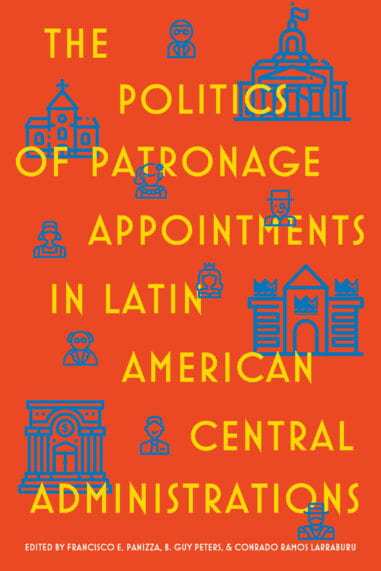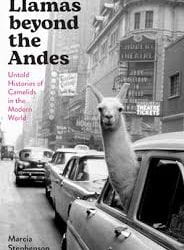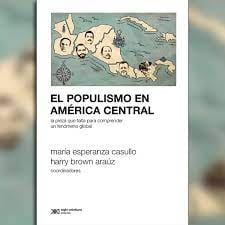A Review of The Politics of Patronage Appointments in Latin American Central Administrations
We are often told that good government requires a well-functioning government bureaucracy, in which public employees are appointed and promoted based on objective assessments of their merit and expertise. Beginning in the late 19th century, governments around the world adopted civil service exams and merit-based promotion systems to combat widespread patronage, known in the United States as the “spoils system.” But patronage appointments continue to be prevalent throughout much of the world, including in Latin America, and increasingly in the United States.
The Politics of Patronage Appointments in Latin American Central Administrations, edited by Francisco E. Panizza, B. Guy Peters, and Conrado Ramos Larraburu (University of Pittsburgh Press, 2022, 284 pages)
Thinking about patronage appointments in this way reveals two important insights. The first is the central role that trust plays in this process: as the editors write in their concluding chapter, “trust is the essence of patronage” (p. 223). Patronage appointments, they argue, are efforts to place trusted individuals into the state bureaucracy— and what we ought to be asking as researchers are questions about the basis of that trust. The second major insight is that not all patronage appointments are partisan, especially since parties have become far less institutionalized in Latin America and now often play minor roles in the political fortunes of executives.
The authors’ typology yields four categories of patronage appointees: party professionals who have policy expertise but also partisan sympathies; programmatic technocrats who represent the normative ideal of the politically neutral technocrat; partisan apparatchiks who are appointed for purely political gain, like electoral brokers and party activists; and political agents, like fixers, who may not belong to the party but who offer political loyalty to the executive. Laying them out in this way highlights how limiting much of our thinking about patronage appointments has been so far: we have largely equated patronage appointments with the apparatchiks category and paid little attention to the other three types.
Of course, these distinctions only matters if indeed patronage appointees are not all apparatchiks. And so, the volume’s ambition is to offer empirical evidence to show that they are not—along with a broader description of the distribution of patronage appointments and their relationships to certain political parties and presidents. Each of the six substantive chapters in the volume studies patronage appointments in a particular Latin American country (Argentina, Brazil, Chile, Ecuador, Mexico, Peru and Uruguay), sometimes within a particular presidential administration and sometimes across several. The ambition is largely descriptive—getting a handle on the types of patronage appointments that executives use, who they appoint and the roles those appointees play—but there are also efforts to understand when and why different presidents rely on certain types of appointments.
Edited volumes are too often disjointed collections of snippets from several authors’ ongoing research on a particular encompassing topic. But The Politics of Patronage Appointments in Latin American Central Administrations is the rare volume in which the editors instead offer a coherent theoretical framework and then each set of chapter authors applies it to the country they study. This volume is the laudable result of a collective research endeavor rather than a patchwork of individual projects.
Even the empirical methods the country chapters employ are remarkably consistent. In each country, the authors interviewed a set of experts and key informants—including scholars, journalists, current and former public employees and members of civil society—working on policies related to the economy, social development, foreign relations and agriculture. Depending on their availability, the chapters complement these data with official records and other secondary sources. All of this paints a rich and cohesive picture of political patronage across the region.
Still, I found myself wanting more introspection about these data. After all, observing informal practices like patronage—at least some forms of it—is difficult even for those with expertise and experience. What kinds of biases might distort expert assessments? How might informants’ own experiences motivate selective recollections? How might the selection of informants—or their self-selection when deciding whether to agree to an interview—skew the results? Rather than taking all of these data at face value, I would have appreciated some discussion about the tradeoffs in different approaches to data collection, and how the authors might use accounts from different informants or sources to triangulate results. It would also have been useful to have a better sense of how informants were selected and recruited, and who failed to participate. Having some data is better than having no data, but only as long as we are also aware of what they may be leaving out.
Still, the available data leave us with a useful look into patronage appointments across the six cases. By and large, across these different political contexts, patronage appointments seem largely motivated by actual policy considerations. Political leaders use patronage largely to place trusted technical professionals in the bureaucracy so that they can offer advice and expertise in delivering policy. For the most part, and certainly at the national level, patronage appointments do not seem to be efforts to control the state bureaucracy or fill it with political loyalists.
The relative strength of parties also seems to matter. Chile and Uruguay stand out as cases where patronage seems to be more widely used to reward party activists precisely because these are the only cases where political parties are still reasonably institutionalized. Similarly, in Brazil, partisan apparatchiks represented a larger proportion of political appointments during the administration of Dilma Rousseff, who spent her political career in the well-organized Workers’ Party, than they did during the administration of Jair Bolsonaro, who came from a minor party that he quickly abandoned once in office.
One question the volume cannot answer is whether we should expect these findings to hold throughout the Latin American region. The six case study chapters focus on important countries in the region, to be sure, but also countries with relatively larger economies, larger state bureaucracies, and some of the more stable political systems. It is hard to know what this tells us about patronage appointments in, say, Honduras or Paraguay. Of course, this simply means that what we need is more research on this topic in other countries.
Understanding what types of patronage appointments executives make and why is incredibly useful, but it also raises the question of their impact on policymaking. In her 2012 book, Jobs for the Boys, Harvard Kennedy School’s Merilee Grindle noted that patronage appointments can actually help to achieve policy goals and improve government responsiveness. IE University political scientist Guillermo Toral’s recent work on Brazil similarly shows that patronage appointees actually improve bureaucratic effectiveness and accountability by facilitation monitoring and aligning incentives. How might thinking about patronage appointments in the more disaggregated way that Panizza, Peters, and Ramos Larraburu propose affect these findings? Are there reasons to think that political professionals, for instance, will produce better policy outcomes than technocratic professionals? Or that partisan apparatchiks will be more accountable than political agents? And do the answers depend on the particular institutional context?
A single book can hardly answer all our questions, and the most reasonable response is that the work continues, that new studies ought to pick up where The Politics of Patronage Appointments in Latin American Central Administrations leaves off. But the volume helps us make important progress, offering new ways of thinking about political patronage and disaggregating patronage appointments into distinctive categories. It reminds us, also, that as with most things, political phenomena are rarely unequivocally good or bad, and that unpacking a phenomenon we usually deride can help us see it through a more nuanced, sharper lens.
Noam Lupu is associate professor of political science and associate director of LAPOP Lab at Vanderbilt University. He is the author of Party Brands in Crisis (Cambridge 2016) and coeditor of Unequal Democracies (with Jonas Pontusson, Cambridge 2024) and Campaigns and Voters in Developing Democracies (with Virginia Oliveros and Luis Schiumerini, Michigan 2019).
Related Articles
A Review of Llamas beyond the Andes: Untold Histories of Camelids in the Modern World
Marcia Stephenson’s Llamas beyond the Andes is about humans making use of another animal. With a dustjacket image of Llinda Llee Llama riding in the back of an automobile in mid-20th-century Times Square, this book illustrates how sentient nature has been engulfed by human cultural objectives since Columbus’ arrival in the Americas and the rise of Europe’s global imperial ventures. The window on all this is American camelids: llamas, alpacas and their wild relations, guanacos and vicuñas.
A Review of Born in Blood and Fire
The fourth edition of Born in Blood and Fire is a concise yet comprehensive account of the intriguing history of Latin America and will be followed this year by a fifth edition.
A Review of El populismo en América Latina. La pieza que falta para comprender un fenómeno global
In 1946, during a campaign event in Argentina, then-candidate for president Juan Domingo Perón formulated a slogan, “Braden or Perón,” with which he could effectively discredit his opponents and position himself as a defender of national dignity against a foreign power.




